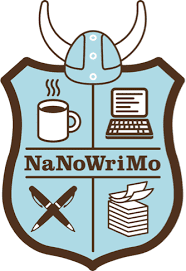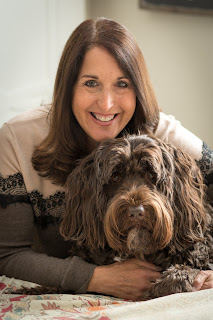In the last of three blogs, author Suzanne Jacobs Lipshaw introduces the NaNoWriMo “Now What?” Months.
NaNoWriMo provides an “I Wrote a
Novel, Now What?” workbook on the “Now What?" section of their website. The
workbook outlines a ten-step revision and editing resource process. I will
outline the steps that resonated with me, but everyone is different, so I
suggest taking a look at the workbook to see what best fits your needs.
Wait
For the entire month of December,
put your novel away. Taking time away from your manuscript will give you the
chance to look at it with fresh eyes in January. Done! Who was I to turn down a
well-deserved break?!
Invest time refamiliarizing
yourself with your manuscript. Read it like a reader—no editing, no revising! But
it is okay to jot down simple thoughts like “love!”, “????”, or “ick!”
Definitely a struggle for those of us that can’t handle seeing a blue and red
underline in our Word documents, but I am a rule follower and held myself back.
I found this step to be valuable as I hadn’t read the entire manuscript over
prior to this.
Since the rest of the steps in the workbook weren’t as concrete as I needed, I chose to wait for NaNo’s four-part revision workshop series which began at the end of January. “Revise Your NaNoWriMo Novel” webinars introduced me to the “Level Down Revision Process.” Hosted by Jessica Brody (author of Save the Cat! Writes a Novel and founder of WritingMastery Academy) and Kristina Stanley (CEO and founder of Fictionary:Book Writing and Editing Software), the information moved fast but was exceedingly valuable. Fortunately, the workshops are recorded and stored on YouTube.
 |
| Sticky Note Storyboard |
These workshops were the catalyst my revision process needed!
The four webinars broke the process
into five steps:
Step 1:
Complete a Hands-Off-Read Through and Take Notes – the difference
between this reread and the one mentioned above is this time you take
comprehensive notes as you reread, and organize your notes by revision level (I
found this step extremely valuable!)
Step 2:
Build your First Draft Storyboard – this can be done with sticky notes or
through Fictionary – see photos (I did both and found benefits to each. If you
have a chance to input your story arc into Fictionary, it’s a must do. It will
amaze you!)
 |
| Fictionary |
Step 3: The Story-Level Revision (also known as the “developmental edit”) – introduced how to analyze a story for problems with structure, pacing, character development, and worldbuilding/setting (I found Jessica Brody’s Writing Mastery Academy videos were very helpful at this level.)
Step 4: The Scene-Level Revision –illustrated how to treat the scenes of a novel like mini stories and analyze each scene for problems with structure, pacing, point of view, transitions, etc. (This is where Fictionary shines by not only giving you the software to outline the “38 Fictionary Story Elements” but providing free videos and webinars with instructions on how to do so.)
Step 5: The Page Level Revision (also known as the “line edit”) – discussed how to analyze a manuscript page by page and line by line, improving it even further by identifying problems with paragraph structure, word choice, dialogue, etc. (I haven’t gotten here yet…revising a novel takes a LONG time!)
Initially, during the webinars, I paid more attention to Jessica Brody—learning a new software didn’t hold any appeal—but somewhere along the way Kristina Stanley pulled me in. After the webinars, I signed up for free trials of both Writing Mastery Academy and Fictionary. I benefited significantly from the Writing Mastery Academy videos that further instructed me through the “Level-Down Revision Process.” And surprisingly, I found myself blown away by the Fictionary software. By analyzing a manuscript form start to finish using the “38 Fictionary Story Elements,” Kristina Stanley has created an efficient, visual way to revise.
Find what resonates with you and
good luck revising!
You can read Suzanne's post on planning her NaNoWriMo novel here and drafting her novel during NaNoWriMo here.
Suzanne Jacobs Lipshaw is an award-winning nonfiction children’s book author and former elementary special education teacher who is passionate about growing young minds. Suzanne’s first nonfiction picture book, I Campaigned for Ice Cream: A Boy’s Quest for Ice Cream Trucks, debuted in April 2019 from Warren Publishing. Her second book Mighty Mahi launched from Doodle and Peck Publishing in March 2022. Suzanne enjoys speaking to schools about writing, leadership, and how kids can make a difference in our world. Her blog, Dynamic Book Duos, features two books that pair together in a meaningful way along with coordinating educational activities to strengthen reading skills.
You can visit Suzanne online at:
v www.suzannejacobslipshaw.com
v https://twitter.com/SuzanneLipshaw
v www.facebook.com/SuzanneJacobsLipshawAuthorEducator













